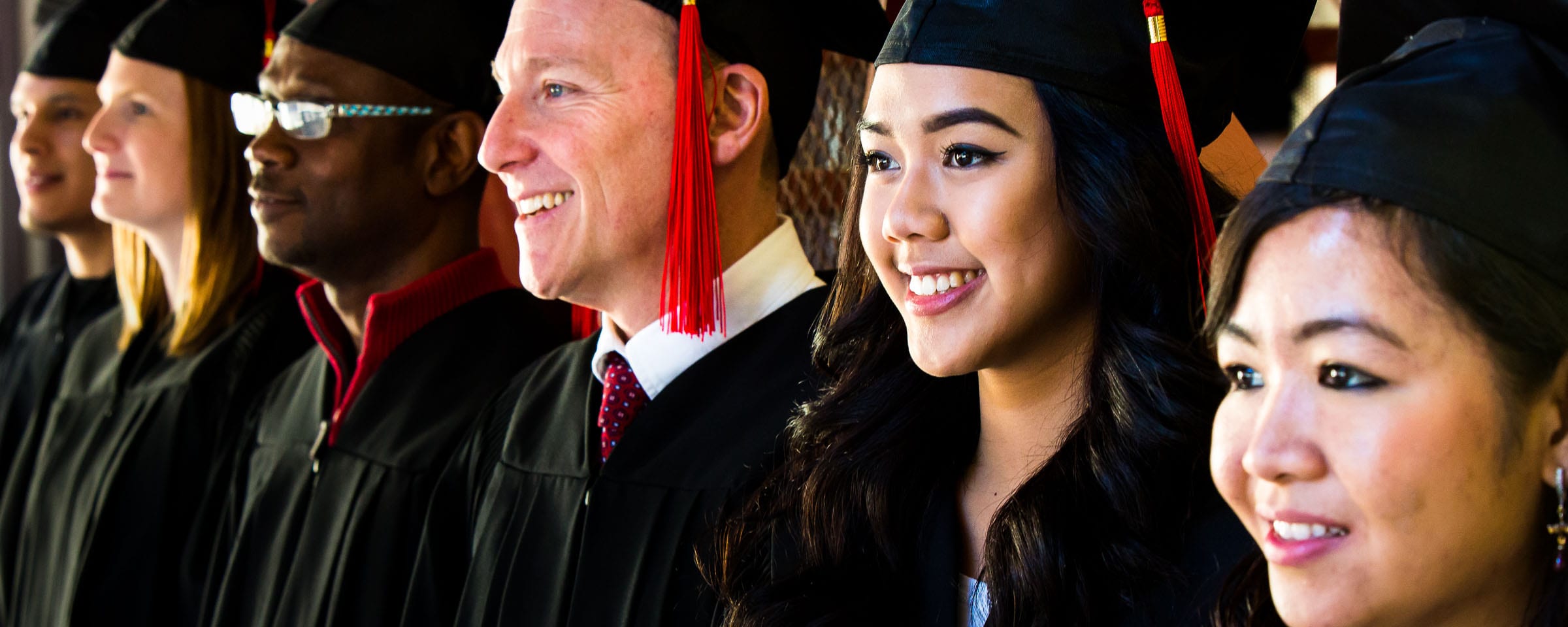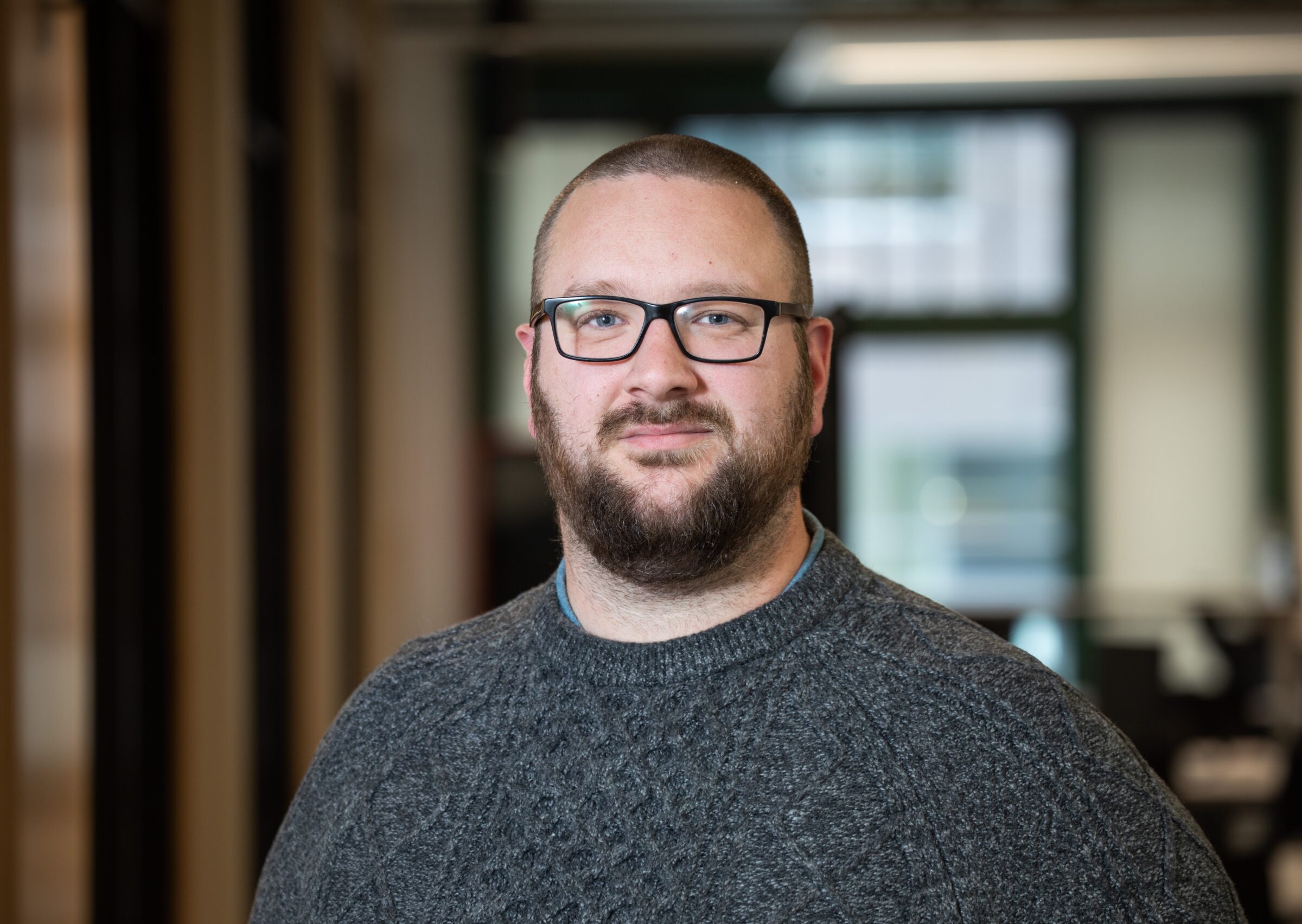Summer project a ‘great experience’ for RRC Polytech alum and Game Development students
Ask RRC Polytech alum Dan Blair about his experience this past summer working with Game Development students, and he’s not shy about giving a glowing review.
“I love bringing on students because I was once one of them,” said Blair, the CEO of Winnipeg-based interactive digital media studio Bit Space Development (BSD) and a graduate of the Web Development stream in RRC Polytech’s Business Information Technology program.
“I talked about this at RRC Polytech’s Directions Conference this fall, because it’s weird to me to stop and reflect—I don’t get to do that often. I’m running a fast-paced tech company, but with this project I was able to slow down and reflect that it’s surreal to bring students in and inspire those who are going through the same or similar program that I went through.”
That project brought six Game Development students—two focusing in development and four in art—to BSD this past summer through the Level UP program.
Level UP, available to all Canadian post-secondary students, gives employers the opportunity to easily find and connect with talented students. It offers students the opportunity to gain paid work experience, build work-relevant skills, and make employer connections through project work, while allowing companies like Bit Space Development to do case studies, market research, software development, and other research-based projects they might not otherwise have the resources for.
“What Level UP allowed us to do was focus on an entirely new idea,” said Blair.
“We were able to have these six students and give them full creative capacity in how we executed on the unit direction, without the need to worry about a client in the mix.”
With careful collaboration between BSD employees, including Blair himself, the six students leveraged classroom learning on Unreal and Houdini modelling to learn the cross-platform game engine Unity. They then got to work on creating a gamified learning experience using similar constraints that a client would normally give.
The experience—a safety demonstration—approached virtual reality learning from a fresh angle. In the VR scenario, learners are put in a workshop surrounded by tools. In this demonstration, though, users are presented with a loss scenario—one they’re probably not likely to forget.
“In the game we made with the students, there is a course of events where you cut your hand in virtual reality if you don’t follow the instructions provided. We can add that aspect because you’re obviously not losing your hand in real life, but it adds a shock value that is beneficial in a learning experience. We leaned into that—if you read everything provided to you, if you make all your cuts properly, you’ll do okay. But if you cut off your hand, you lose—and you learn from that.
It sounds morbid, but it’s not as gruesome as it sounds. The shock value is what really gels in your mind, and that’s something that already exists in the safety industry.”
Bit Space Development’s clients already include those who make safety part of their everyday work, including the Workers Compensation Board of Manitoba, Manitoba Building Trades Institute, Manitoba Construction Sector Council, and IBEW 2085. (BSD mostly works with clients in the defence, manufacturing, utilities, and construction industries.)
And while the gamified experience created by students wasn’t made for a specific client, it did set a path forward for the future.
“It’s a workflow we’re going to revisit,” confirmed Blair. “In a limited amount of time, Level UP allowed us to focus on the research we wanted to do, which was ‘can we shake up the way we handle education in VR?’ Up until then, we were building with the same flow every time, and this was something new and exciting.
Gabrielle Rivera was one of the students working with Bit Space Development over the summer. She put her thoughts in a blog post detailing her experience, with her main takeaway being how closely the Level UP experience and her time at BSD connected with the courses she was taking at school.
“It was a great experience, especially for those of us just starting out in the industry. I think especially with project management, it gave us an understanding of what it really feels like to work at a studio — being given tasks, taking part in daily scrums, using the agile method. It matched up with what we’re doing in our course.”
The gamified experience, now finished as a demo, is on display at the RRCSA Sandbox Zone in RRC Polytech’s newest building, Manitou a bi Bii daziigae.
For Blair, the VR learning experience was a full circle moment. It was also one years in the making after he went through Web Development and left the Business Administration program in 2014. “I’m both a Business Information Technology grad and a Business Admin dropout,” Blair noted with a laugh.
At that time, Blair and a few other students who weren’t on co-op started to think about project ideas and how to create future opportunities for students in the web development industry.
The idea eventually looped them into helping to launch the ACE Project Space—a collaborative co-working and research space at RRC Polytech for students, entrepreneurs-in-residence, external clients, instructors, and more. Everybody is encouraged at ACE to share ideas and discuss their experience.
“I found out that one of my skills was not only to work with technology but to communicate it as well,” said Blair.
“That was eight years ago now, and I would say that it just got out of control. Now I have 35 employees and two offices here in the city, and we bring in a fair amount of revenue…That part of my early career ended up being a resounding success and it showed me what it took to be an entrepreneur. I never actually worked anywhere after graduating from the College except for working for myself—and our specialty has always been in extended reality and video game simulation development.”
Under Blair’s direction, Bit Space Development has evolved over the years. They started by focusing on web XR experiences using 360 content, giving ways for clients to author user experiences using 360 photos and videos.
“Since then, VR has evolved and changed so much,” said Blair. “Today, we’re an immersive technology studio that focuses on the development of simulations and technologies that enhance the simulation process.”
The company has three teams—those who work on simulations, a web team that helps with platforms, and an engineering team that works on hardware. Blair also ensures his company works with a moral code in mind, as BSD does not typically work with traditional for-profit clients.
“I always say if you want to sell more cars using VR, I’m not your guy. But if you want to teach a medic how to save more lives during a mass casualty event, I’m on board. We try to have some sort of social good in the work we do and we hope that resonates with the team that we build.”
Now, thanks to Level UP, students have had a taste of being on the Bit Space Development team, helping to change the direction of how the organization works—and what kind of projects it can provide clients in the future.
“It’s a fantastic feeling, it’s validation to the work that I put in, and it satisfies me to a cosmic level,” said Blair. “My hopes were achieved in a way I didn’t expect that they would. It sounds cheesy, but that’s just how it is.”
Profile by John Gaudes (Creative Communications, 2012)

